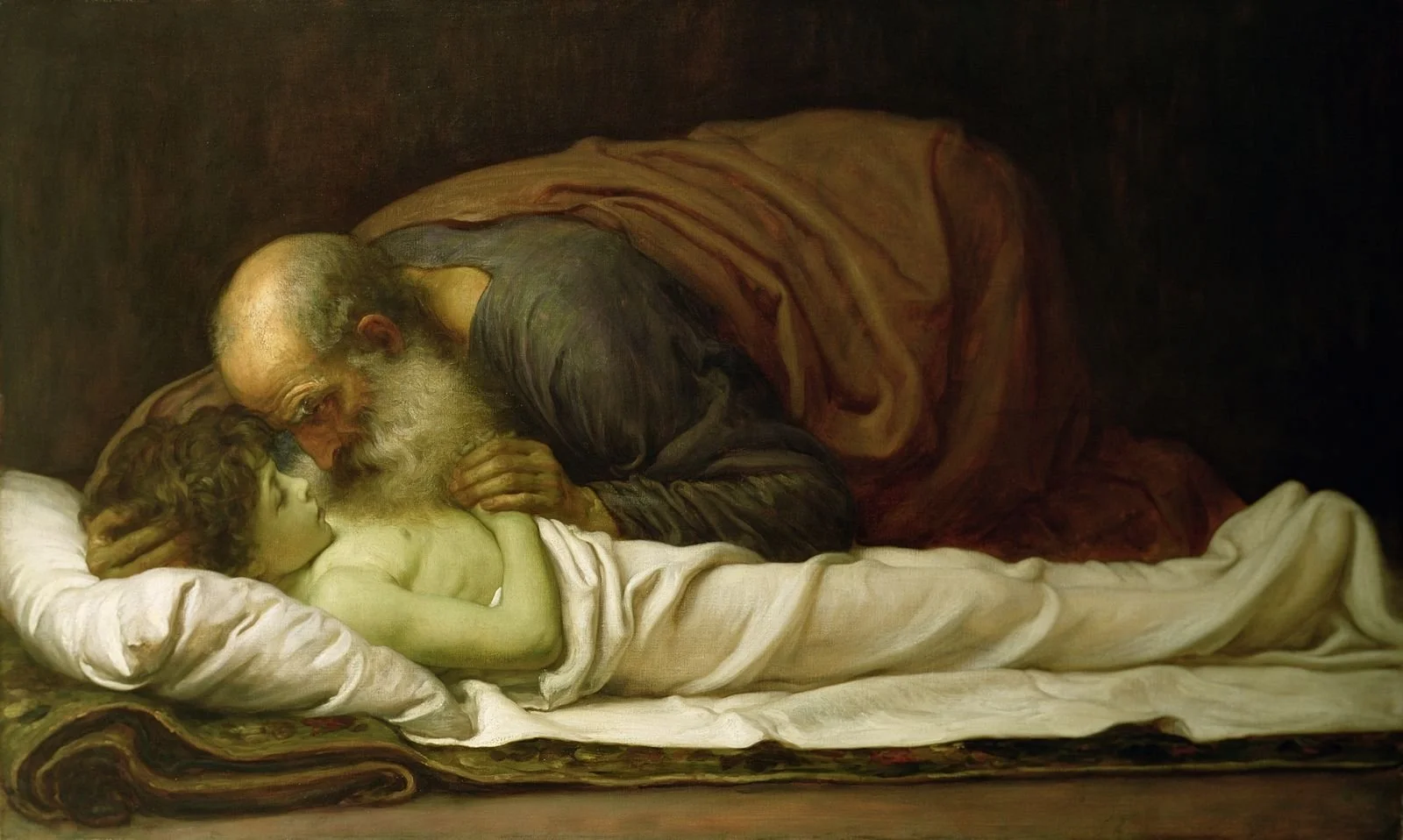Stretched out towards All
“I have become all things to all people, that by all means I might save some.”
The Victorian British painter Frederic Leighton (1830-1896) brings us face to face with this week’s Old Testament lesson in his 1881 painting, Elisha Raises the Shunammite’s Son. Leighton’s painting is remarkable for its use of color, light, and composition to create a dramatic and emotional effect. The contrast between the dark background and Elisha’s earthen robe the bright white bedsheet draws attention to the central figures of Elisha and the boy. The light also highlights the expressions of the characters: the boy’s pale and peaceful repose; the intensity of the prophet’s gaze…
Leighton was an Aestheticist, more interested in “art for art’s sake” — interested in the potentialities of beauty and form, more than the moral or social message. I wonder if those same inclinations are what drew him to painting this moment with such attention and care.
I cry to you, O Lord; I say, “You are my refuge, my portion in the land of the living.”
— Psalm 142:5
Fifth Sunday of Epiphany
Texts for this Week
Prayer
O Lord, our heavenly Father, keep your household the Church continually in your true religion, that we who trust in the hope of your heavenly grace may always be defended by your mighty power; through Jesus Christ our Lord, who lives and reigns with you and the Holy Spirit, now and for ever.
Thou Knowest, Lord
“Thou Knowest Lord” is a choral anthem composed by Henry Purcell, based on one of the funeral sentences from the Book of Common Prayer. Purcell wrote two versions of this anthem, one in a polyphonic style and one in a homophonic style. The latter was part of the Music for the Funeral of Queen Mary in 1695, which was also performed at Purcell’s own funeral a year later. The performance in this video is from the state funeral of Queen Elizabeth II.
The anthem is a short but powerful expression of faith and hope in the face of death. The text is a prayer to God, who knows the secrets of our hearts, to spare us from the pains of death and to grant us eternal salvation. The music reflects the solemnity and sincerity of the words, using a simple and clear harmonic structure, a slow and steady tempo, with a low and narrow vocal range, periodically punctuated by high and anguished cry, “O God!.”
This anthem is a good representation of Purcell’s style and skill as a composer of sacred music. Purcell was able to combine the influences of the English and continental traditions, as well as the ancient and modern styles, to create music that was both expressive and elegant. He was also able to adapt his music to different occasions and contexts, such as the funeral of a queen or a commoner, using the same text but different musical settings.
Thou knowest, Lord. God in Christ Jesus is stretched out towards us in our weakness, our sickness, our suffering, and our death, as Elisha was stretched out over the body of the Shummanite’s son. Purcell gives musical expression to this tender, beautiful, and transformative truth.



